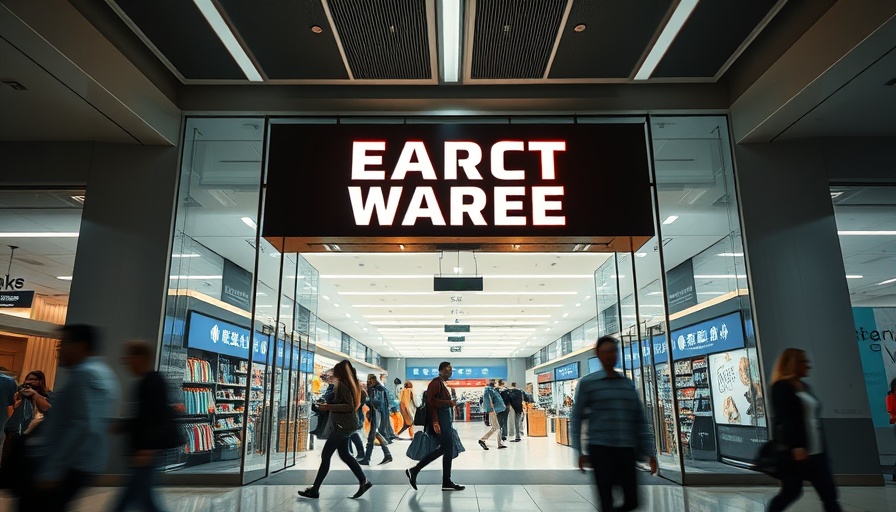
Understanding the Importance of Advance Directives
Advance directives are critical documents that guide medical decisions when individuals can no longer voice their preferences. Often, these documents are viewed as unnecessary by younger, healthy people. Yet, as BJ Miller, M.D. and Bridget Sumer, L.C.S.W. discuss in their insightful conversation, waiting until a crisis arises is not a viable strategy. The conversation around who makes medical decisions for us in a time of incapacitation is an important one—one that should be initiated as early as possible.
In Advance Directives: Why You Shouldn't Wait, the discussion explores the critical importance of having conversations about medical decision-making, highlighting key insights that spark deeper reflection and action.
Why Do Advance Directives Matter?
Research shows that most people acknowledge the significance of advance directives, yet only a minority actually have one. This disconnect between understanding the importance and taking action poses serious implications for individuals’ families during medical emergencies. Most often, it puts unnecessary emotional stress on loved ones, who may find themselves negotiating end-of-life decisions without clear input from the patient.
The Conversation Around Medical Decision-Making
Involving loved ones in these crucial discussions about medical care is critical. As Miller emphasizes, assessing whom one would trust to make these significant decisions is a vital aspect of advance care planning. Those discussions not only help to clarify choices but also provide a bridge of understanding within family dynamics should the time for decision-making come.
Facing Fears and Myths
These conversations can come with fears and myths surrounding incapacitation and medical intervention. Many individuals struggle with picturing scenarios where they lose their autonomy, which can inhibit openness in these discussions. However, embracing these conversations can lead to a better understanding of what a person truly values in life, ultimately leading to a more comforting and reassuring approach to advance care plans.
Shifting Perspectives—From 'Do Not Resuscitate' to 'Allow Natural Death'
Traditionally, many directives are framed with prohibitions. New movements are pushing for more positively framed alternatives, such as changing ‘Do Not Resuscitate’ (DNR) to ‘Allow Natural Death’ (AND). This shift introduces the concept of cultivating a life worth living, rather than focused solely on avoiding unpleasant medical interventions. Recognizing the value of what makes life meaningful allows for a more comprehensive approach to advance care planning.
How to Approach These Conversations
Miller suggests setting an informal atmosphere for these discussions, akin to sharing a meal with a loved one. This ‘table-setting’ approach can help ease the tension surrounding difficult topics. Shared experiences, comfort, and openness create a better environment for emotional sharing, allowing individuals to articulate their values and wishes clearly.
Creating a Wellness Routine
Just as advance directives need regular discussions, integrating wellness conversations into daily life is essential. Building a healthy lifestyle supports mental clarity, resilience, and emotional strength that helps individuals during tough decisions. Techniques such as mindfulness meditation, holistic wellness practices, and stress relief strategies should be part of regular routines. Understanding one's body through nutrition and fitness, along with self-care practices, greatly enhances overall health and supports sound decision-making.
Practical Tips for Everyone
When considering health and wellness in relation to advance directives, it's easy to see how interconnected our decisions are. Here are some actionable tips:
- Create a balanced diet plan incorporating immune-boosting foods that enhance overall wellness.
- Incorporate daily fitness routines to maintain physical strength.
- Practice stress relief strategies to cultivate a calm, clear mind.
- Engage in regular conversations with family and friends about your health preferences and decisions.
- Utilize natural supplements known to promote longevity and well-being.
As we navigate life’s uncertainties, it’s important to prepare internally for the decisions that lie ahead, thus ensuring that both our health and values are preserved.
A Call to Prepare
The conversation around advance directives is one that should not be delayed. Whether it’s discussing your wishes with a loved one or considering a dietary change for better health, each step contributes to a better future. Just as you would plan for other important areas of your life, such as financial stability, planning for your health and medical decisions is equally imperative. Let’s take ownership of our futures together—start having these conversations today.
 Add Row
Add Row  Add
Add 




 Add Row
Add Row  Add
Add 


Write A Comment